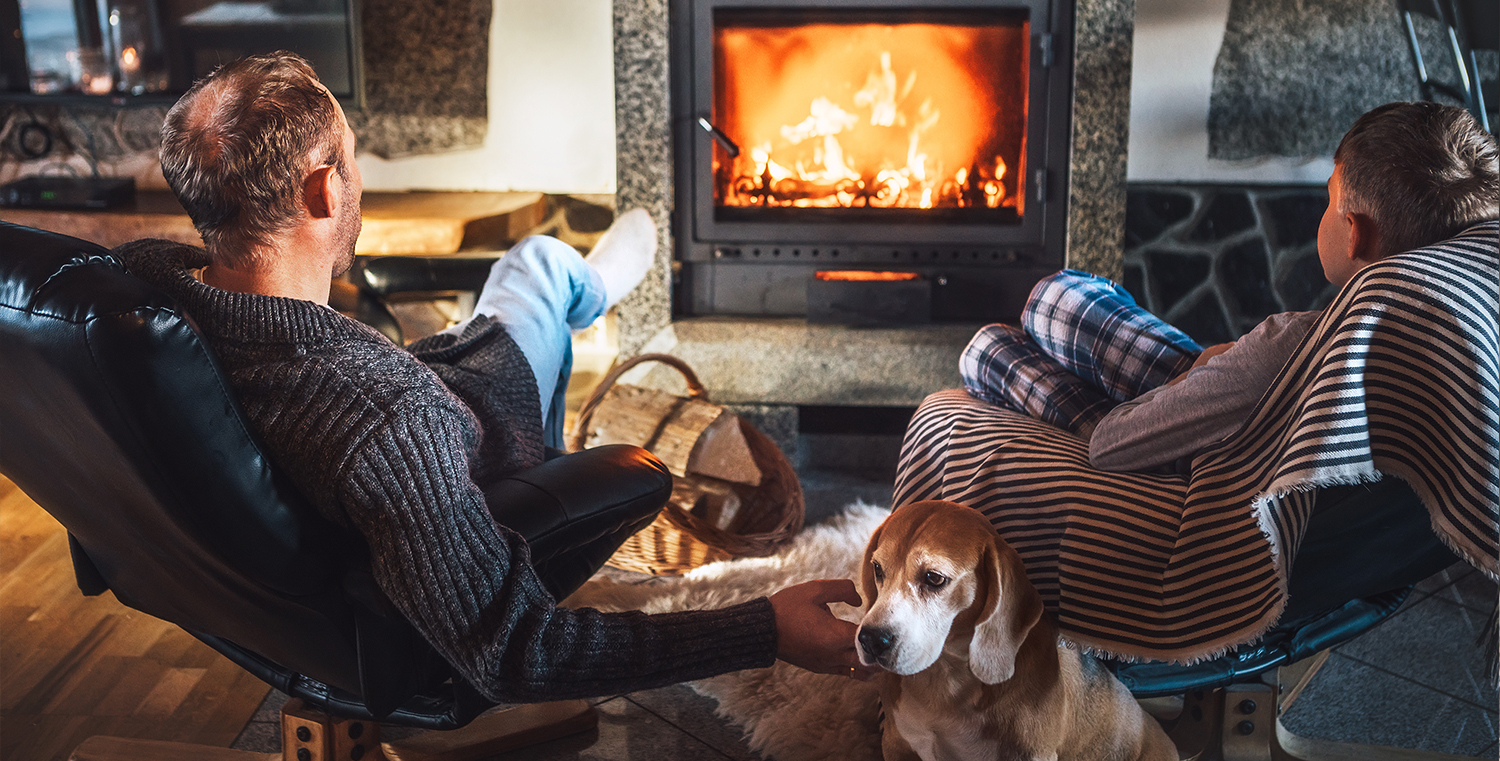Winter is coming and with it comes the cost of heating your home. The internet is full of ideas for saving money on energy costs, but they can be expensive. Many major renovation projects are not worth the expense to make a home more energy efficient. However, there are other ways to lower your heating costs. You can save money on your energy bills without the costs skyrocketing. Here are our top 9 tips to say goodbye to shocking heating bills.
- Bundle up
- Wear warm clothes, put on socks and plush slippers. Wearing warm clothes indoors doesn’t cost you anything and so you can keep the temperature in your home a few degrees cooler and save a lot of money.
- Keep a soft, warm blanket on the sofa to cover up with while you watch TV, read or chat with friends. Blankets bring warmth and a spark of color to your home.
- Bundle up your home
- Not all exterior doors and windows are winterized. Use plastic to cover unused windows and doors. Stores like Walmart, Home Depot and Lowes have window covers that you can buy for as little as $7 to $12 per window. Door kits can be slightly more expensive and can cost between $20 and $100. Some hardware stores stock them, but you can also find them through online suppliers. Some kits even have built-in zippers for occasional use.
- These coverings will stop drafts and help keep your home warm. If you can’t afford kits or plastic wrap, you can try hanging blankets instead.
- Lower the temperature
- When you are away from your home and when you are tucked away in bed, consider turning the thermostat down. Some smart thermostats can be programmed to automatically turn on and off to fit around your schedule. The cost of a smart thermostat varies by manufacturer but expect at least $130 plus installation. If you do not have a smart thermostat, you can also adjust the thermostat manually (and for free).
- When lowering the temperature, remember to keep your plumbing warm so pipes don’t expand and burst. Consider lowering the temperature to 60 degrees at night and when you are away. Sleep.org recommends keeping the room temperature between 60- and 67-degrees Fahrenheit for better sleep. They also recommend a temperature of 65 to 70 degrees for babies and young children to help them sleep through the night.
- Save money by leaving the oven door open
- After baking cookies or preparing a meal in the oven, leave the door open slightly. There’s a lot of heat in that oven. Leaving the oven door open will heat the kitchen and surrounding rooms – which means the furnace will have to work a little less.
- Use space heating sparingly
- Use space heating safely. Use portable heaters only in the room where you are staying. Do not place them too close to anything that can easily catch fire, and make sure they do not overheat. According to the Consumer Product Safety Commission (CPSC), approximately 1,200 fires occur each year because of portable electric heaters.
- Never leave the heating on when you are not at home or when you are sleeping. Keep these devices at least three feet away from curtains, sofas, beds and flammable objects. Place them on a flat, stable surface to prevent them from falling off. Look at the capacity of the heater and only buy heaters that are certified. Finally, when you turn on the heater, make sure that the cord, plug, or socket is not hot to the touch. If the ignition gets hot, unplug the power cord. Do not use it until it has been checked by a technician.
- Low-efficiency furnaces cost between $30 and $50, while high-efficiency furnaces cost more than $100.
- Seal cracks and holes
- Use silicone to seal all cracks in doors, windows, and other openings. Fill cracks and seal properly along the basement and walls. The amount of heat that is lost through cracks may not seem significant, but it adds up. A tube of caulk only costs a few dollars, and it’s an easy project to do on the weekend.
- Sockets and switches can be insulated to prevent heat loss, as well. Use foam spray to seal between the metal junction box and the sheet metal unit. Remove the excess and replace the cover.
- Partial Closure of Vents
- Many people close or seal vents in rooms they do not use. While this may seem like a good idea, you can cause excessive air pressure in the HVAC system and damage it. Your heating system is designed to bring a certain amount of heated air into your home. This is achieved by continuous airflow to and from the system. Restricting airflow in the system can cause pressure leaks in the ducts. It also makes your system work harder and burn parts faster.
- It is preferable to leave the air vents in these unused rooms partially open to allow circulation and protect your heat pump system. The same goes for the door of an unused room. Leave them open or only partially closed.
- Apply sealing tape around windows and doors. Sealing tape is a flexible product that is usually self-adhesive. There are different types of paint strippers on the market. So, make sure you buy the one that best suits your application and make sure it lasts until it runs out.
- Seal the top, sides and bottom of doors and windows. In addition, the access to the attic must be sealed. You can also attach door brushes – also called shoes – to the underside of exterior doors. This step reduces the amount of air escaping through the crack.
- Stripping helps, especially in old houses. The price of this product varies depending on the type you need to use, but it’s about $10 for a 3-foot roll. Sweeping the doors will cost more.
- Insulate the attic
- Cover the attic entrance with plastic, pieces of insulation, old blankets, windproof paper, painter’s canvas or even some old shirts. All of these measures will help slow or even prevent drafts and the escape of warm air through your roof. The heat probably rises to the attic, so you may not notice a cold draft even though your expensive hot air is flowing.
- Turn on those fans!
- Finally, if you have a ceiling fan, it can help circulate warm air from the ceiling to the room. In winter, the fans should run clockwise. Run the fan at the lowest setting.
Our tips only take a few minutes or just a few dollars to implement. Try them out this winter to save money on your heating bills! And, if all else fails, Just Call Burton at (402) 343-0011. We’re here to help.







